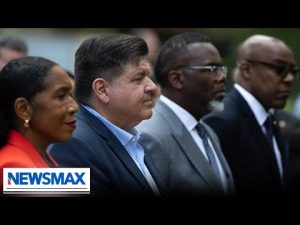Four years ago, the world watched in shock as a suicide bombing outside Kabul International Airport claimed the lives of 13 U.S. service members. This tragic event took place amid the pandemonium of America’s hurried departure from Afghanistan. Recently, former President Donald Trump captured the solemnity of this anniversary by honoring those fallen heroes in the Oval Office. He acknowledged the fiasco, describing it as one of the most humiliating days in American history, while emphasizing the hard lessons learned from it. After all, leaving a country in disarray isn’t quite the crowning achievement one hopes for on the global stage.
While the dust from that debacle settles, questions about American foreign policy linger. Enter Pete Hegseth, who has decided to reexamine the U.S. exit strategy from Afghanistan. Apparently, no stone will remain unturned in this quest for answers, with results expected by next year. It seems the search for clarity on what went so dreadfully wrong has taken center stage, even if it feels a bit like closing the barn door after the horses have bolted.
Amid these reflections, the world is buzzing with anticipation of potential peace talks on multiple fronts. Special Envoy Steve Witkoff expresses optimism that conflicts such as those in Ukraine and other troublesome hotspots might see resolution soon. According to him, “Peace through strength” is just the ticket for sorting out global squabbles. One might wonder, however, if the wheels of diplomacy always turn that smoothly. For those keeping score, the peace talks between Ukraine and Russia have recently lost momentum, exposing the complexity behind seemingly rosy predictions.
The conversation shifts gears when it comes to North Korea. President Trump’s willingness to meet again with Kim Jong Un draws curiosity and skepticism in equal measure. Some wonder if more discussion could deter conflict on the Korean Peninsula, which, frankly, nobody wants to see engulfed in nuclear chaos. Talks might yield little tangible progress, but then, isn’t the hope for dialogue better than the ominous alternative? Perhaps a handshake is worth more than a thousand Twitter storms.
In these turbulent times, global power games continue to evolve. The United States, under new leadership, seeks to reforge alliances while navigating diplomatic minefields. Whether brokering peace or expanding military presence, the aim is clear: to reclaim stability in an unpredictable world. As these efforts play out on the international stage, one can only hope history favors those making strides toward peace, despite previous blunders.







